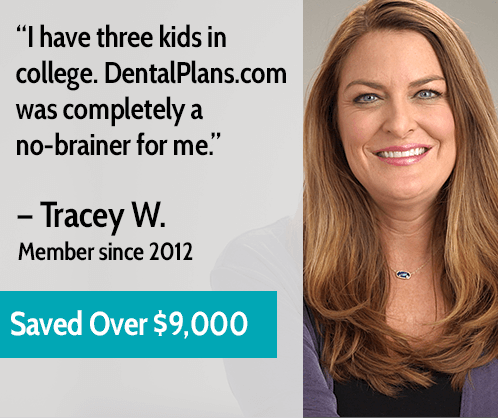“Healthcare is not just about healing the body, but also about ensuring peace of mind and protecting one’s financial stability.”
The topic of health insurance in various cities of Florida, including Coral Springs, is essential for residents seeking proper healthcare coverage. Access to well-structured health insurance plans can lead to improved health outcomes, financial security, and peace of mind for individuals and families. With the rising healthcare costs and the complexity of insurance plans, understanding the best options available is more crucial than ever. Whether you are an individual, a family, a small business owner, or an independent contractor, making well-informed choices in health coverage is vital for your overall well-being and financial future.
To navigate through the myriad options available and to avoid costly mistakes, consider a market research consultation conducted by a licensed health insurance expert. They can save you time and money while ensuring you choose the right health coverage for your unique needs. Don’t hesitate; fill out the form below to get started and secure your peace of mind today!
Free Marketplace Research

The Difference Between ACA Marketplace and Private Insurance
Understanding ACA Marketplace Options
The Affordable Care Act (ACA) marketplace offers various health insurance plans that must meet specific coverage standards. These plans are typically more affordable for those who qualify for subsidies based on their income. Residents can apply for a plan during the open enrollment period, allowing them to access comprehensive benefits, including preventive care and pre-existing conditions coverage. However, marketplace plans may come with limited provider networks and could restrict choices when selecting healthcare providers. Additionally, navigating the eligibility and enrollment process may be challenging for some consumers without guidance.
Advantages and Disadvantages of Private Health Insurance
Private health insurance allows for flexibility and a broader selection of plans based on individual needs. These plans can often include nationwide provider networks, giving policyholders the freedom to choose their healthcare providers without restrictions. However, private insurance may not offer subsidies like the ACA marketplace, which can make it more expensive for some individuals and families. Furthermore, out-of-pocket costs can be higher, and understanding plan details such as deductibles and premiums can be overwhelming without expert assistance. Evaluating both ACA and private options is crucial for making the best choice for your health and finances.

Cost Affecting Factors in Health Insurance
Understanding Premiums and Deductibles
Premiums are the monthly payments made to maintain health insurance coverage. The amount of premium you pay can vary significantly based on the plan selected, your age, and the specific needs of your household. Deductibles, on the other hand, represent the amount you must pay out-of-pocket before your insurance starts covering expenses. Understanding the dynamic between premiums and deductibles is crucial; sometimes, lower premiums come attached to higher deductibles, which can lead to unexpected healthcare costs. It’s important to evaluate both aspects when selecting your health plan to ensure it fits your financial situation.
Out-of-Pocket Expenses and Maximums
Out-of-pocket expenses encompass the costs you pay for healthcare services outside of your premium, including deductibles, copayments, and coinsurance. Understanding these expenses is vital, as they can accumulate quickly depending on your health needs. The out-of-pocket maximum is the cap on how much you have to pay in a single year, after which your insurance covers 100% of your eligible medical expenses. This maximum is a key feature to look for, as it provides a safety net to avoid financial devastation in the event of a serious illness or injury. Evaluating out-of-pocket costs can greatly influence your overall healthcare budget.
Get a hussle-free consultation
Pre-existing Health Conditions
How Pre-existing Conditions Affect Your Coverage
Pre-existing health conditions refer to any health issues you have before obtaining insurance coverage. Under the ACA, insurers cannot deny coverage based on pre-existing conditions, which is a significant advantage for individuals facing ongoing health challenges. However, when looking into private insurance options, policies may vary. Some might offer plans that exclude or limit coverage for certain pre-existing conditions, so it’s essential to read the fine print and ask questions about coverage limits before enrolling in a private plan. Understanding these nuances can help ensure you secure the best plan for your health situation.
Your Rights and Protections
Individuals with pre-existing conditions have specific protections under the ACA, which ensures they cannot be charged higher premiums or denied coverage outright. This crucial provision aims to make healthcare accessible to those who need it the most. In contrast, private insurance plans may impose waiting periods or exclusions related to pre-existing conditions, which can leave individuals vulnerable. Being aware of your rights in accessing health coverage is essential to navigate the complex landscape of health insurance effectively. Protections can differ between state regulations and insurer policies, making it necessary to understand your options thoroughly.

Choosing the Right Provider Network
Types of Provider Networks
Provider networks vary significantly between insurance plans and can affect your healthcare accessibility. There are three primary types of networks: Health Maintenance Organizations (HMOs), Preferred Provider Organizations (PPOs), and Exclusive Provider Organizations (EPOs). HMOs often require members to select a primary care physician and referrals to see specialists, while PPOs offer more flexibility by allowing visits to any healthcare provider, albeit at a higher cost for out-of-network services. EPOs combine elements of both, with lower costs for in-network visits. Understanding these differences is critical in selecting a plan that aligns with your healthcare preferences indeed.
The Impact of Network Size on Care Access
The size of a provider network matters significantly when considering a health plan. Larger networks generally provide broad access to specialists and facilities, making it easier for patients to find the right care when they need it. Conversely, smaller networks may limit options, necessitating careful consideration of the providers available within the network. It’s essential to evaluate whether your preferred doctors and hospitals are in-network before making a decision. A thorough comparison not only influences your immediate healthcare access but also the long-term satisfaction with your health plan.

Key Takeaways for Coral Springs Residents
The Importance of Knowing Your Options
Choosing the right health insurance plan is essential for ensuring health and financial stability. Coral Springs residents must understand their coverage options, whether through the ACA marketplace or private plans, to make informed decisions based on their unique health needs. Evaluating factors such as premiums, deductibles, and out-of-pocket expenses are critical in finding a suitable plan. Additionally, consider provider networks and protections for pre-existing conditions to secure comprehensive care. Knowledge is power when it comes to health coverage, ensuring you and your family remain healthy and protected amidst uncertainties.
Steps to Choose Carefully
As you consider your health insurance options, prioritize your health needs, budget, and provider accessibility. Take the time to compare various plans, and don’t hesitate to seek assistance from licensed experts who can offer invaluable insights into the best policy choices tailored for you. Remember, the right coverage is not just a financial decision; it shapes your healthcare experience and impacts your well-being. Don’t wait—reach out to a professional today for guidance and ensure you have a plan that meets your needs effectively.
If you have questions regarding your health insurance options, please don’t hesitate to call or text (407) 588-0505 for immediate assistance.
FAQs
1. What are the main differences between ACA marketplace insurance and private insurance?
ACA marketplace insurance is structured to provide comprehensive coverage adhering to federal regulations, often with income-based subsidies. In contrast, private insurance offers more flexibility but can come with higher premiums and limited protections regarding pre-existing conditions.
2. Are there financial assistance options for ACA marketplace plans?
Yes, individuals and families with qualifying incomes can receive financial assistance through subsidies, which can significantly reduce premiums and out-of-pocket costs.
3. How can I evaluate my health needs to choose the right plan?
Consider factors like the frequency of doctor visits, any ongoing health issues, and financial capacity for premiums and out-of-pocket expenses. This assessment will guide you in selecting the most suitable health coverage.
4. Can I change my health insurance plan if my needs change?
Yes, you can change health insurance plans during the open enrollment period or if you experience a qualifying life event, such as marriage or job loss, that affects your coverage needs.
5. How do provider networks impact my choice of health insurance?
The type of provider network can significantly affect your ability to access care. Plans with larger networks provide greater flexibility in choosing healthcare providers, which might be essential if you have preexisting health concerns.






0 Comments